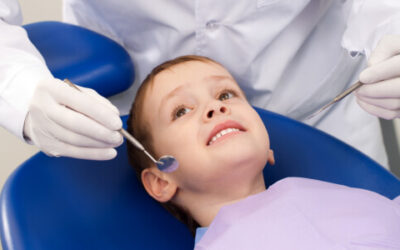You know good hygiene and regular dental visits are important if you want to have healthy teeth and gums for decades to come, but there may be more to it than meets the eye. Would you believe us if we told you the results of a quick mouth exam could indicate an increased risk of heart disease? It’s true. Continue reading to find out more about the science behind the oral-systemic link and how you can use that information to potentially reduce your risk of an adverse health event.

The Research
In 2012, the American Heart Association officially acknowledged an unexplained correlation between oral and cardiovascular health. Since that time, both government and independent researchers have been actively investigating the relationship to determine if it could eventually be used to identify elevated risks and perhaps even one day save lives.
Data from multiple studies have confirmed the connection, including this Scottish national survey of more than 11,800 people, which concluded that poor oral hygiene is indeed associated with a higher individual risk of cardiovascular disease. More specifically, however, it is gum disease that seems to be a marker in the risk of coronary heart disease (CHD) and other serious health conditions. That is because chronic inflammation is a known contributor to the development and progression of CHD. It is believed that periodontal disease only adds to inflammation levels in the body, resulting not only in the local inflammatory responses in the gums, but also in systemic responses elsewhere in the body – including the cardiovascular system.
Know Your Gums
You should never ignore the warning signs of gum disease, but you must first know what they are to be able to identify them. According to the American Academy of Periodontology (AAP), you may have periodontal disease if:
- Your gums are red, swollen, or tender
- Your gums bleed when flossing or brushing
- You have chronic halitosis (bad breath)
- Your gums show signs of infection (i.e. pus)
- Your teeth have shifted or loosened
- You have gaping pockets around the base of your teeth
- Your gums appear to be receding or pulling away from the teeth
- Your teeth look ‘longer’ than they used to
What You Can Do
Depending on your age, oral health concerns, and how long it has been since your last visit, we may recommend an x-ray of your teeth. This can give us insight into the source of certain types of symptoms, such as temporomandibular joint complications that are causing headaches and jaw clicking, or hidden cysts, abscesses, or decay that are causing chronic pain. We can also use x-rays to examine your natural bite and where your top and lower arches meet.
Cleaning
There is not yet any conclusive evidence that treating your periodontal disease will reduce your risk of cardiovascular disease, but getting a diagnosis from your dentist could indicate the need for further cardiovascular health evaluation, as well as preventive or interventional periodontal treatment. Depending on the severity of the condition, this could include the use of antibiotics, soft-tissue grafting, guided tissue regeneration, LANAP, or some other treatment protocol.
To minimize your risk of developing inflammatory gum disease, we suggest:
- Twice-daily brushing
- Daily flossing
- Professional dental care twice annually (or as indicated by your dentist)
- Properly-fitting dentures, if applicable
Ultimately, the key is staying on top of your health and becoming your own greatest advocate. The next time you visit your Houston dentist for a checkup, be sure to ask about the condition of your gums and whether a medical follow-up may be necessary.
Scheduling Your Next Visit
Before you leave, you will schedule your next visit. If there are any issues that need treatment, such as cavities, you may need to return for a dental filling. If not, you will schedule your next dental exam according to the recommendations of the dentist – usually about six months in the future.
If you are looking for a new dentist in Katy or have questions about what to expect at one of our office check-ups, give us a callat (281) 492-8900 to speak with one of our helpful team members. We look forward to serving you soon.


